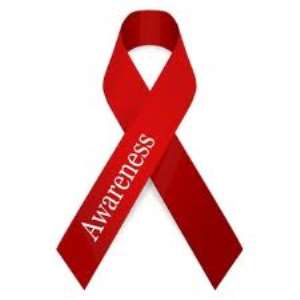
Accra, March 19, GNA - Dr Leopold Zekeng, Country Coordinator of UNAIDS, has said that though a draft HIV and AIDS law had been developed, Ghana has not adopted a HIV specific law.
He said currently there was no legal instrument specific to HIV in Ghana hence acts of violations could not be legally handled.
Dr Zekeng said this when addressing the opening session of a two-day national consultation meeting on improving the legal framework concerning human rights and HIV and AIDS issues in Ghana, adding that countries which had HIV specific laws were able to punish people who violate the human rights of persons affected by HIV and AIDS, thereby eliminate the stigma and discrimination against such groups.
He said it was important to strengthen the partnership in an effort of safeguard the human rights of such vulnerable groups and help halt the spread of HIV in Ghana, adding “partnership is a key component in the long journey of attaining the three zeros which were: Zero new infections, Zero discrimination and Zero HIV and AIDS-related deaths”.
Dr Zekeng said though Ghana was yet to conduct a stigma index, it was believed that the outcome would not differ from what pertained in countries that had conducted similar researches and expressed the hope that such an index would help strategise to deal with the challenge in an appropriate way.
The two-day consultative meeting is aimed at elaborating on recommendations for the improvement and strengthening of the judiciary in order to implement and analyse controversial legal issues linked to human rights and HIV in Ghana.
It is also to ensure the implementation of a working group on HIV to follow-up on the recommendations made at the meeting, exchange and identify the perspectives and strategies that guaranteed the effectiveness of the legal framework in the epidemiology, socio-economic and cultural context of Ghana.
Participants at the meeting include representatives from the Ghana AIDS Commission, United Nations Agencies, human rights as well as community-based organisations, health professionals, Parliamentarians, Religious leaders, associations of People Living with HIV (PLHIV), Judicial Service, National Commission on Human Rights and Administrative Justice (CHRAJ) and the Media.
Dr Zekeng said participants would determine the usefulness in adopting a specific legislation on HIV in Ghana adding that though there was increased commitment to human rights globally which has led to a decline in new infections as well as increases in access to treatment and care, there was still more to be done.
He said “HIV-related stigma and discrimination is retarding efforts of ensuring access to care and treatment for PLHIV in Ghana”, adding when people's rights are not protected, they become vulnerable and lose confidence in seeking care.
Dr Zekeng said there was the need to maintain the commitment and political will in upholding the human rights of the vulnerable in society and hoped the outcome of the meeting would form the basis for a political dialogue on the legal framework on human rights for HIV and AIDS.
Ms Justice Agnes Dodzi, an Appeal Court Judge, called for a concrete strategy to be developed by participants to help curb stigma and discrimination and to restore security, hope and dignity to people affected by HIV and AIDS in the country.
GNA




 Meta releases new version of conversational AI across its platforms
Meta releases new version of conversational AI across its platforms
 Cape Town named Africa’s Best Airport 2024 by Skytrax
Cape Town named Africa’s Best Airport 2024 by Skytrax
 Bono East: Four injured after hearse transporting corpse crashes into a truck
Bono East: Four injured after hearse transporting corpse crashes into a truck
 ‘Be courageous, find your voice to defend our democracy’ — Sam Jonah urges journ...
‘Be courageous, find your voice to defend our democracy’ — Sam Jonah urges journ...
 Exodus of doctors, nurses and teachers have worsened because of unserious Akufo-...
Exodus of doctors, nurses and teachers have worsened because of unserious Akufo-...
 2024 election: Avoid insults, cutting down people in search of power – National ...
2024 election: Avoid insults, cutting down people in search of power – National ...
 ‘You passed through the back door but congratulations’ — Atubiga on Prof Jane Na...
‘You passed through the back door but congratulations’ — Atubiga on Prof Jane Na...
 Government’s $21.1 billion added to the stock of public debt has been spent judi...
Government’s $21.1 billion added to the stock of public debt has been spent judi...
 Akufo-Addo will soon relocate Mahama’s Ridge Hospital to Kumasi for recommission...
Akufo-Addo will soon relocate Mahama’s Ridge Hospital to Kumasi for recommission...
 We must not compromise on our defence of national interest; this is the time to ...
We must not compromise on our defence of national interest; this is the time to ...
